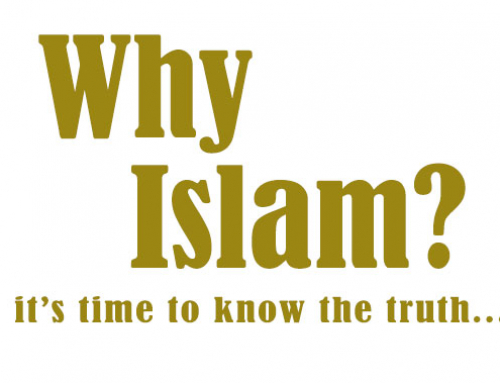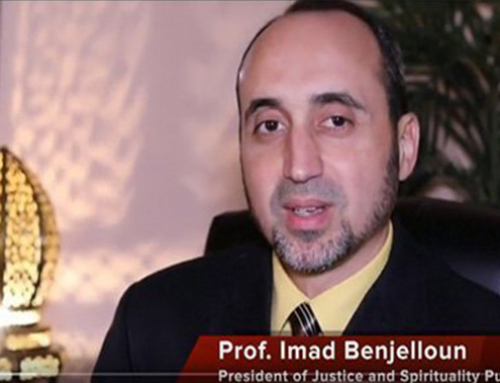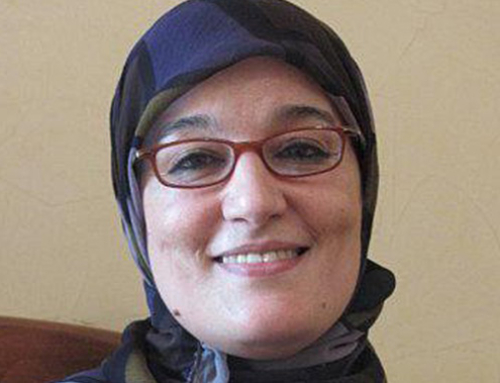Abu Haamid al-Ghazaali
June 3, 2014
KNOW that people entertain many false and mistaken beliefs as to the true nature of death.
Some have imagined that death is extinction, and that there is neither Concourse nor Resurrection, nor any consequence to good or evil, and that man’s death is as the death of animals and the drying up of plants. This is the opinion of the atheists and of all those who have no faith in God and the Last Day.
Another group has thought that man extincts with death, and that – as long as he is in the grave he neither suffers chastisement nor feels the delight of any reward until he is restored at the time of the Concourse.
And still others hold that the spirit remains and is not perished by death, but that it is the spirits which experience reward or punishment rather than the bodies, which are not restored or resurrected at all.
These beliefs are all unsound and deviated from the truth. For intellection, together with the pronouncements of the [Qur’ān’s] verses and of many Traditions, testify that death signals a simple alteration of state, and that after leaving the body the spirit survives to feel either torment or bliss.
The significance of its separation from the body is that it acts no longer within it, since the body is no more subject to its dictates. Now, the members [of the body] are the tools of the spirit, which, when put to use, enable it to strike with the hand, to listen with the ear, to see with the eye, and to know the true nature of things with the heart. The heart here is merely another expression for the spirit, which is able to learn things without the medium of any tool.
That is why it may independently feel pain in the form of sadness, misery or sorrow, and pleasure in the form of various kinds of happiness and contentment; none of these things have any link with the members.
Thus, all that is purely an attribute of the spirit abides with it after it has been cleft from the body, while that which is associated with it through the medium of the members is extinguished with the body’s death until the spirit is restored thereto. It is not an irrational belief that the spirit should be returned to the body actually in the grave, nor yet that it should be withheld until the Day of Resurrection. God is best appraised of what He has decreed for each one of His servants.
The falling into disuse of the body through death resembles the incapacitation of certain limbs during one’s life upon the affliction of an unsound humor, or a tension in the arteries which prevents the spirit from penetrating therein, so that the knowing, thinking, percipient spirit remains, making use of some of the members but being barred from the use of others.
Death signifies the incapacitation of the members in their entirety, all of which are the tools of the spirit. By the ‘spirit’ I mean that abstraction through which man apprehends the sciences, and the pains of sorrow as well as the pleasures of happiness. However completely its authority over the members may be annulled, these sciences and perceptions continue on, as do joys and miseries, and as does its vulnerability to pain and pleasure.
For man is in reality that abstraction which apprehends the sciences and feels pain and pleasure, and which may not die (or, in other words, be extinguished), for death means no more than the end of its control over the body and the end of the body’s status as its tool. Just as a chronic disease may mean that the hand is no longer a tool of which use is made, so death is a chronic disease spread throughout all the members. It is man’s soul and spirit that constitute his real nature, which is immortal. [Upon death] his state changes in two ways.
Firstly, he is now deprived of his eyes, ears and tongue, his hand, his feet and all his parts, just as he is deprived of his family, children, relatives, and all the people he used to know, and of his horses and other riding-beasts, his servant-boys, his houses and property, and all that he used to own. There is no distinction to be drawn between his being taken from these things and these things being taken from him, for it is the separation itself which causes pain. At times, separation may take place through the plundering of a man’s wealth, and at others when a man is seized and led away from his power and wealth: in both cases the pain is identical.
The meaning of death is quite simply the deprivation of a man’s property consequent upon his being tossed into another world which does not correspond to this. If there was anything in the world the presence of which had become familiar to him and in which he had found consolation and peace, then he will greatly lament for it after he dies, and feel the greatest sorrow over losing it. His heart will turn to thoughts of everything he owned: of his power and estates, even to a shirt which he used to wear, for instance, and in which he took pleasure.
However, had he taken pleasure only in the remembrance of God, and consoled himself with Him alone, then his bliss will be great and his happiness becomes perfect. For the barriers which lay between him and his Beloved will now be removed, and he will be free of the obstacles and cares of the world, all of which had distracted him from the remembrance of God. This is one of the aspects of the difference between the states of life and death.
The second lies in the fact that upon death certain things are revealed before him which were never disclosed to him in life, in the way that things may be revealed to a man who is awake which were concealed from him during his slumber, for ‘people are asleep, and when they die they awake’. The first thing to be revealed to him is his good and evil works, such as will benefit or harm him, and which have been inscribed in a book folded away in the innermost heart from the perusal of which he was distracted by his worldly concerns. When these concerns are cut away his actions all stand revealed before him. So that he is dismayed by every sin which he beholds; so much so that he would fain plunge into the depths of Hell in order to escape from this misery. It is at this time that he shall be told, Sufficient for you today is your own soul as a reckoner! (1) .
All of this is revealed when his breathing ceases and before his interment. Kindled within him are the flames of separation, by which I mean separation from all the things in which he had felt confident in this transient world, rather than that which he did with the intention of laying up provisions and support, for whoever searches for provisions to bring him to his destination will surely be delighted at being separated from the remainder of them when he attains his goal, for he never sought the provisions for their own sake.
This is the state of the man who has taken from this world only what he needs, and who has longed for an end to these needs that he might dispense with [this quest for provisions]. Now that what he longed for has come about he no longer stands in need of them. These varieties of punishment and torment are at their most vehement when they assail him before his burial.
Then, when he has been interred, his spirit may be restored to him to face another species of chastisement (unless he is to be spared this). The state of the man who luxuriates in the world and sets his confidence therein is comparable to that of a man who, in the absence of a king, enjoys himself in his palace, kingdom and harem, trusting that the king will deal leniently with him or that he is unaware of the ugly deeds he is committing, until such time as the king suddenly seizes him and shows him a copy-book in which all his foulnesses and misdeeds have been recorded in full detail.
The king, who is mighty and powerful, is greatly concerned for his spouses and exacts retribution from all who would encroach on his authority, paying no heed to those that would intercede on behalf of any that have rebelled against him.
Contemplate the plight in which such a man would be upon being caught, and the fear, shame, disgrace, sorrow and contrition which would be his lot before the king’s chastisement descended upon him.
Thus is the state of the dead evil-doer who had been dazzled by this world and set his trust therein following his death and before the punishment of the grave has descended upon him. We seek refuge in God from such a thing! For truly, humiliation, disgrace and exposure are more dreadful than any torment which might afflict the flesh, whether through blows, cutting wounds, or anything else.
The foregoing constitutes an indication of man’s state at the time of death. It has been witnessed by people of insight by virtue of an inner vision stronger even than the vision of the eye. Similarly, it is attested to by the authority of the Book and the Sunna.
But to draw the veil from the true nature of death is impossible, since death cannot be understood by those that do not understand life, and life may only be understood through knowing the true nature of the spirit itself and by coming to understand the nature of its essence. The Messenger of God (may God bless him and grant him peace) was not given leave to speak of this more than by saying ‘the spirit is by the command of my Lord)‘. Hence it is not given to any of the divines [scholars of dīn] to reveal the secret of the spirit, even if one were to uncover it. It is permitted only to mention the state of the spirit after death.
References
| ↑1 | Qur’an 17:14 |
|---|

















